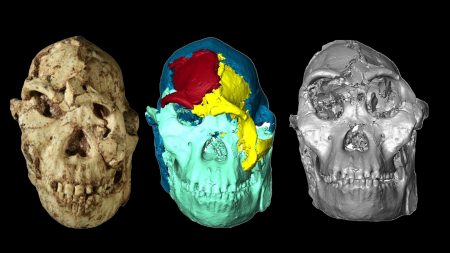The looming “silver tsunami” of aging Baby Boomers, the generation born between 1946 and 1964, presents a significant challenge to healthcare systems worldwide. One of the most pressing concerns is the projected surge in dementia cases, a debilitating neurodegenerative condition that robs individuals of their cognitive abilities, independence, and ultimately, their sense of self. While aging is the most prominent risk factor for dementia, the sheer size of the Baby Boomer cohort means that even a small percentage developing the disease will translate into a dramatic increase in overall cases, potentially straining healthcare resources and impacting families and communities on an unprecedented scale. This demographic shift necessitates proactive measures to address the complex societal and individual implications of this impending “dementia epidemic.”
Understanding the factors contributing to this anticipated rise in dementia cases is crucial for developing effective prevention and intervention strategies. While age remains the primary risk factor, other contributing elements include genetic predisposition, cardiovascular health, lifestyle choices, and environmental influences. Some individuals carry specific genes that increase their susceptibility to Alzheimer’s disease, the most common form of dementia. Conditions like hypertension, high cholesterol, and diabetes can damage blood vessels in the brain, increasing the risk of vascular dementia. Lifestyle factors such as smoking, poor diet, lack of exercise, and social isolation can also contribute to cognitive decline. Furthermore, exposure to environmental toxins and head injuries may play a role in the development of dementia. Recognizing and addressing these modifiable risk factors offers a crucial opportunity to mitigate the projected increase in dementia cases and promote healthy aging within the Baby Boomer population.
Despite the seemingly daunting prospect of a surge in dementia cases, emerging research offers a glimmer of hope. Studies indicate that adopting a healthy lifestyle can significantly reduce the risk of developing dementia, even in those with a genetic predisposition. Regular physical activity, a balanced diet rich in fruits, vegetables, and omega-3 fatty acids, and maintaining a healthy weight can protect brain health and improve cognitive function. Staying mentally active through activities like puzzles, reading, and learning new skills can also enhance cognitive reserve, the brain’s ability to withstand damage without showing symptoms of cognitive decline. Managing chronic conditions like hypertension and diabetes through medication and lifestyle modifications is essential for maintaining cerebrovascular health. Furthermore, engaging in social activities and maintaining strong social connections can provide both emotional and cognitive benefits, promoting overall well-being and potentially reducing the risk of dementia.
The focus on individual actions to mitigate dementia risk is complemented by the increasing importance of public health initiatives aimed at promoting brain health across the lifespan. These initiatives often emphasize early detection and diagnosis of cognitive impairment, allowing for timely intervention and access to support services. Raising public awareness about dementia, its risk factors, and available resources is vital for reducing stigma and encouraging individuals to seek help when needed. Expanding access to cognitive screenings and diagnostic tools can facilitate early identification of individuals at risk or in the early stages of dementia, enabling timely interventions and support. Investing in research on the causes, prevention, and treatment of dementia remains crucial for developing more effective therapies and ultimately finding a cure. Public health initiatives can play a significant role in creating supportive communities that promote healthy aging and provide resources for individuals living with dementia and their caregivers.
The projected increase in dementia cases associated with the aging Baby Boomer population also has significant economic implications. Dementia care is costly, placing a significant burden on healthcare systems, families, and individuals. As the number of individuals living with dementia rises, the demand for long-term care services, specialized medical care, and home healthcare assistance will increase, straining existing resources. The loss of productivity due to individuals with dementia leaving the workforce and family members taking on caregiving responsibilities also contributes to the economic impact. Furthermore, the emotional and psychological toll on families and caregivers can be substantial, leading to decreased quality of life and potential burnout. Addressing the economic challenges associated with the anticipated rise in dementia cases requires proactive planning and resource allocation at both the individual and societal levels.
In conclusion, the aging of the Baby Boomer generation presents a significant challenge in the form of a projected increase in dementia cases. While the demographic shift and associated health concerns are substantial, the potential to mitigate this impact through proactive measures is equally significant. By focusing on modifiable risk factors, promoting healthy lifestyles, investing in research, and strengthening public health initiatives, societies can strive to minimize the burden of dementia on individuals, families, and healthcare systems. Empowering individuals to take control of their brain health through informed choices and access to resources is paramount in navigating the “silver tsunami” and fostering a future where individuals can age gracefully and maintain cognitive vitality. The challenge is substantial, but through collective action and a commitment to healthy aging, the impact of the projected dementia surge can be significantly reduced.














